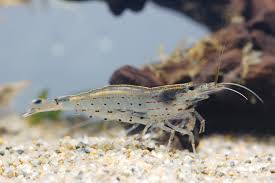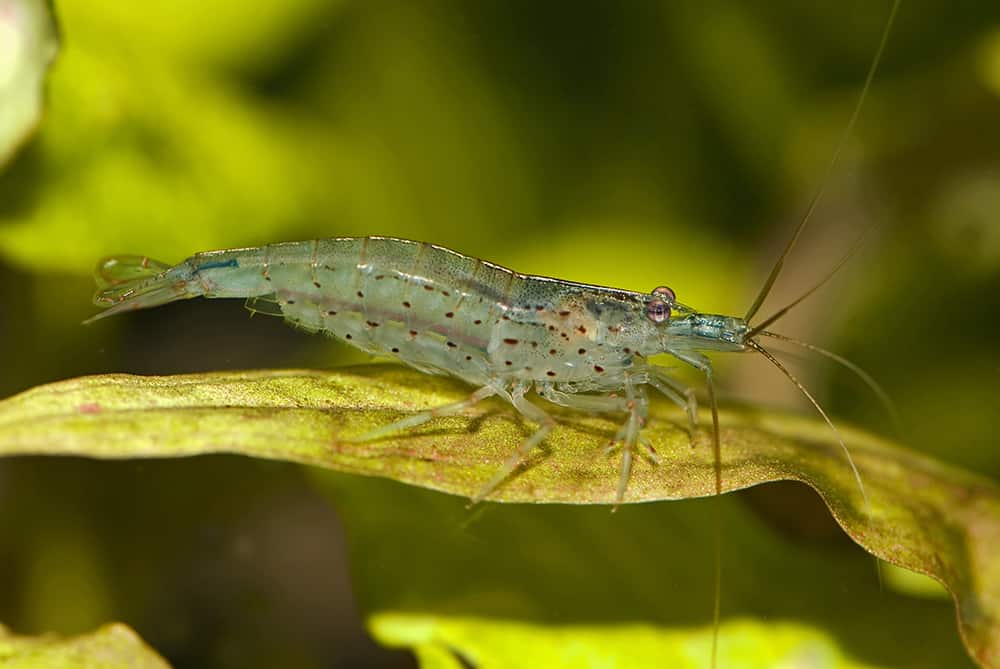
Common names: Amano shrimp, Japonica Shrimp, Algae Shrimp
Scientific name: Caridina Multidentata (previously Caridia Japonica)
Average Adult Size: 1-2 inches / 3-5cm
Place of origin: South Eastern Asia
Typical tank setup: Lots of plants and wood for grazing and providing cover.
Recommended min. aquarium capacity: 8 gallons / 30 litres
Compatibility: Community shrimp, but could be seen as food by large fish.
Temp: 62 – 79 Deg F / 17 – 26 Deg C
Water chemistry: ph 6-8. Tolerable of a wide range of conditions.
Feeding: Caridina Multidentata’s primary diet will be the natural growth of biofilm and algae present in the aquarium. A wide variety of dried leaves and branded shrimp foods will also be accepted, as well as various fruit and veg.
Sexing: Males are generally smaller and slimmer. Another sign is the spots on the sides; on males, the spots are distinct and more or less evenly spaced, whilst on females in some places they tend to stretch out and merge with one another, forming rough broken lines.
Breeding: Females can be seen carrying eggs, which then go through a larval stage once hatched. Salt water is needed for the shrimp to develop past the larval stage, therefore, caridina multidentata cannot be raised in a freshwater aquarium.
Additional Information: The Amano Shrimp is a very popular shrimp in the hobby, second in popularity to the Red Cherry Shrimp (neocaridina davidi). The name Amano Shrimp originates from the well known aquascaper Takashi Amano who frequently uses the shrimp in his aquariums as algae eaters. However most people do not know that the Amano Shrimp is a difficult shrimp to breed and that virtually all Amano Shrimp are caught in the wild and then sold to hobbyists. Captive breeding has been achieved but is rare. Caridina Multidentata are tolerable of a wide range of conditions provided they are properly acclimatised , but preferring slightly harder, alkaline water. Heavy metals are not tolerated, so great care needs to be taken when selecting medication for a tank with shrimp in. Ammonia and nitrite are also not tolerated. Like all shrimps, c. multidentata will molt its shell, this is nothing to worry about, and all part of the growth and development of shrimps.



Related Posts